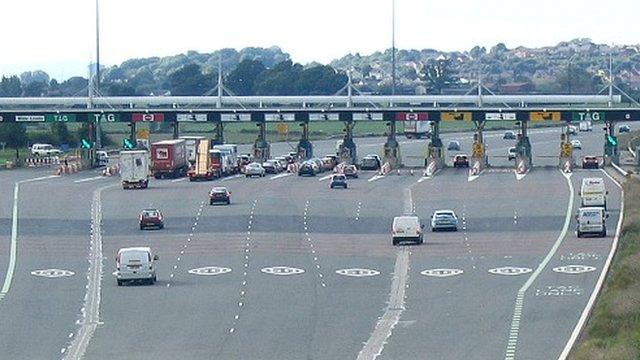Severn crossings: Tolls could be free to use at night
- Published
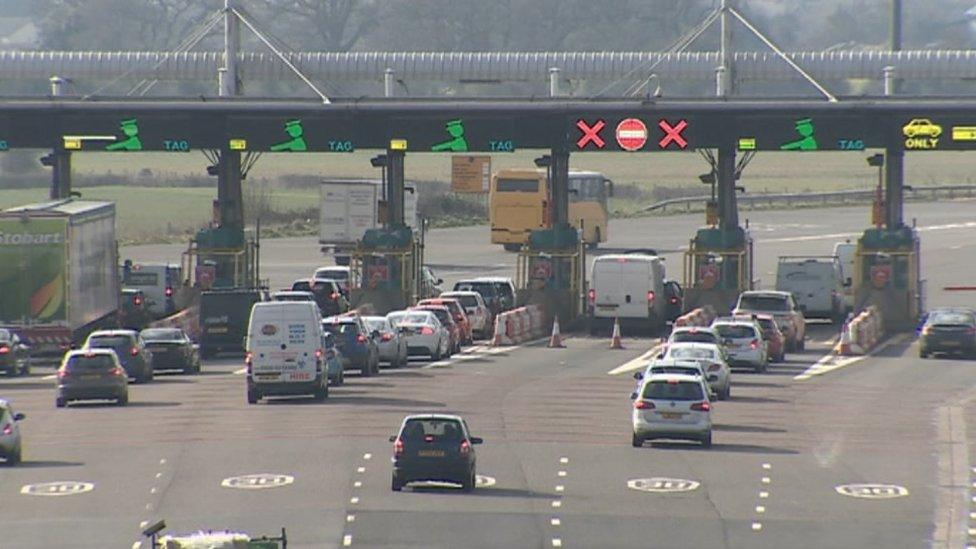
The Severn crossings could be made free to use at night under proposals being considered by the UK government.
It is looking at whether to make the bridges toll free between 22:00 GMT and 06:00.
The move is being analysed as a possible way of dealing with a forecast rise in traffic as a result of a proposed cut in toll prices.
Ministers have suggested cutting tolls to as low as £3 for many motorists by 2018.
Forecasts suggest traffic would rise by 45% between 2018-2027 if the reduction was brought in.
The UK government is also considering a "free-flow" tolling system - removing toll barriers and using cameras to track who uses the bridges - as a way of managing the traffic impact.
The issues are all being considered as part of a consultation, external which closes on March 10.
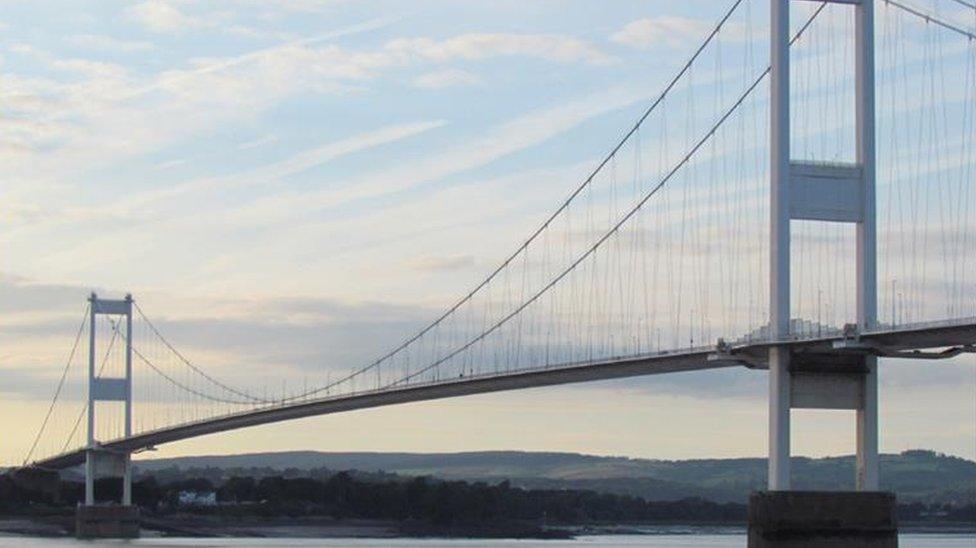
On Friday, the UK government announced proposals to cut the tolls to as low as £3 once the bridges enter public ownership, which is likely to take place around late 2017 and early 2018.
Current forecasts indicate traffic on the crossings will increase by 28% between 2018-2027, but a report by the Department for Transport (DfT) estimates this would increase to 45% if the reductions are introduced.
"Consequently because of reduction in tolls traffic volumes are forecast to increase by 17% over and above what they would have done," the consultation document reads.
It also states the UK government is "considering ways to manage this effect, including considering the options for free-flow tolling and day-time only tolling".
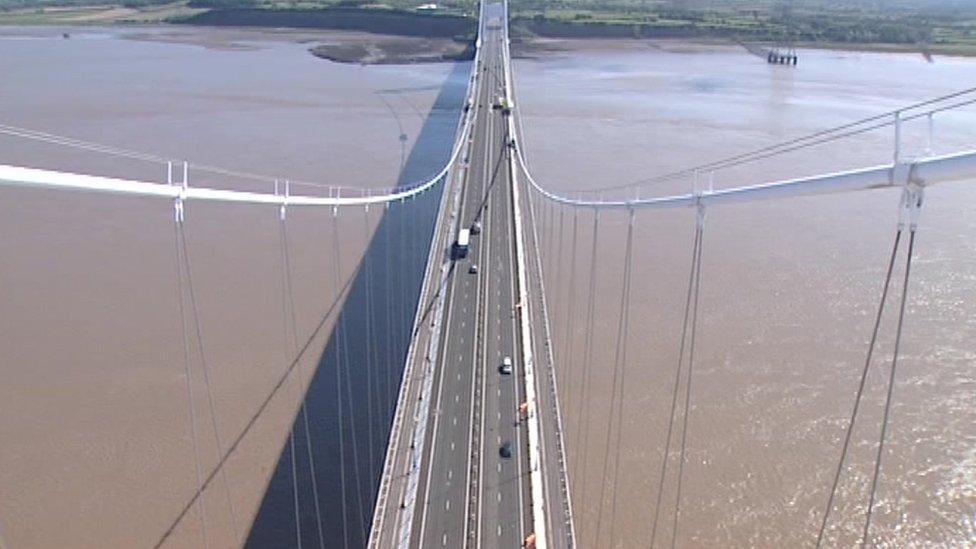
Early analysis on removing the charge between 22:00 and 6:00, estimates a £6.7m loss in revenue in 2018 if nobody changed the times they used the crossings.
Data indicated that 6.5% of traffic on the M48 and 8.1% of traffic on the M4 crosses the Severn at those times.
Based on the experience at the Dartford crossing, which is toll free between 22:00 and 6:00, officials estimate about 0.7% of daytime trips across the Severn could be re-timed to take place in a free evening period.
That would increase the impact to around £7.2m in 2018.
Abolishing toll 'risk'
"It seems likely that most of this change would be from just after to just before 6:00 rather than at 22:00, when traffic volumes are lower," the consultation reads.
The document lays out the reasons why the government is not proposing to abolish the tolls entirely, saying it would "put at risk the future of the crossings".
"The reality is that given the size and complexity of these structures there will always be a cost to ensuring their safe operation," it reads.
"It has long been government policy that the costs associated with keeping the crossings functioning should be paid for by the users that benefit."
- Published13 January 2017
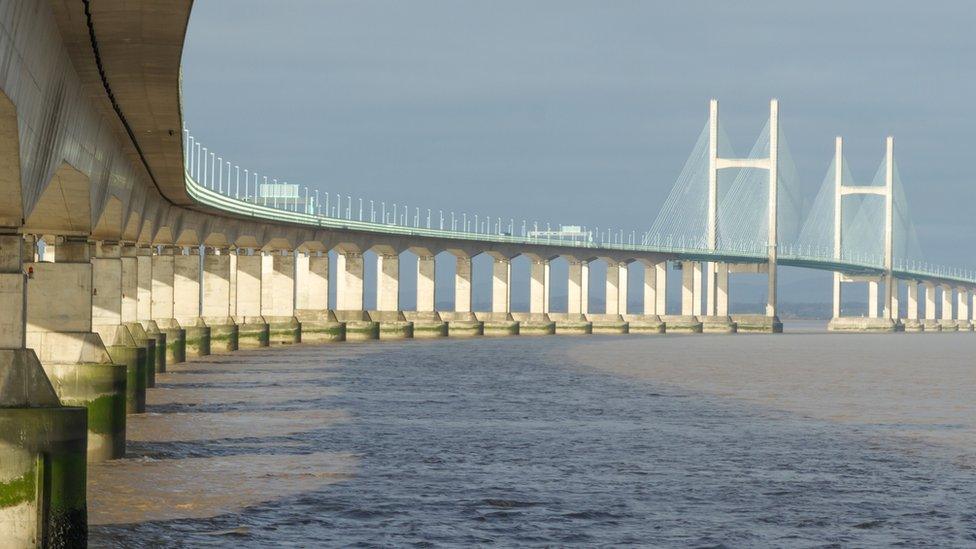
- Published12 January 2017
